
Majestic Matebian: The Sacred Mountain of Timor-Leste
Matebian Mountain, standing tall at 2,315 meters, is one of the highest peaks in Timor-Leste. Known as the 'Mountain of Souls', Matebian holds deep cultural and spiritual significance for the local people. The mountain is not only a natural wonder but also a pilgrimage site, where locals often go to honor their ancestors. The journey to Matebian is an adventure in itself. The surrounding landscape is lush and green, offering stunning views of the countryside. As you ascend, you will pass through traditional villages where you can experience the local way of life. The people are warm and welcoming, often eager to share their stories and traditions with visitors. At the summit, you will be rewarded with breathtaking panoramic views that stretch all the way to the coast. The peak is often shrouded in mist, adding to its mystical allure. Whether you are an avid hiker or simply someone who appreciates natural beauty, Matebian Mountain is a must-visit destination in Timor-Leste.
Local tips in Matebian Mountain
- Best time to visit is during the dry season, from May to November, for clear skies and better hiking conditions.
- Hire a local guide for the hike. They can provide valuable insights and enhance your experience with their knowledge of the area.
- Carry sufficient water and snacks. There are limited facilities on the way up the mountain.
- Respect local customs. Matebian is a sacred site, and it is important to be mindful of cultural sensitivities.
- Wear sturdy hiking boots and pack warm clothing. Temperatures can drop significantly at higher altitudes.
Majestic Matebian: The Sacred Mountain of Timor-Leste
Matebian Mountain, standing tall at 2,315 meters, is one of the highest peaks in Timor-Leste. Known as the 'Mountain of Souls', Matebian holds deep cultural and spiritual significance for the local people. The mountain is not only a natural wonder but also a pilgrimage site, where locals often go to honor their ancestors. The journey to Matebian is an adventure in itself. The surrounding landscape is lush and green, offering stunning views of the countryside. As you ascend, you will pass through traditional villages where you can experience the local way of life. The people are warm and welcoming, often eager to share their stories and traditions with visitors. At the summit, you will be rewarded with breathtaking panoramic views that stretch all the way to the coast. The peak is often shrouded in mist, adding to its mystical allure. Whether you are an avid hiker or simply someone who appreciates natural beauty, Matebian Mountain is a must-visit destination in Timor-Leste.
When is the best time to go to Matebian Mountain?
Iconic landmarks you can’t miss
Gunung Matebeanfeto
Discover the breathtaking beauty and adventure of Gunung Matebeanfeto, a mountain peak in Timor-Leste, perfect for nature lovers and hiking enthusiasts.
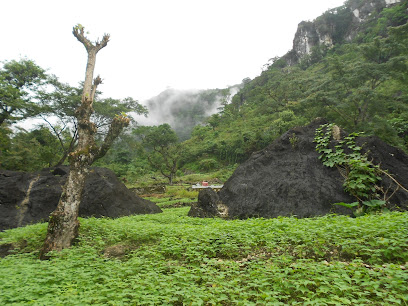
Matebian
Explore the breathtaking heights of Matebian, the second highest mountain in Timor-Leste, and immerse yourself in its stunning natural beauty and rich biodiversity.
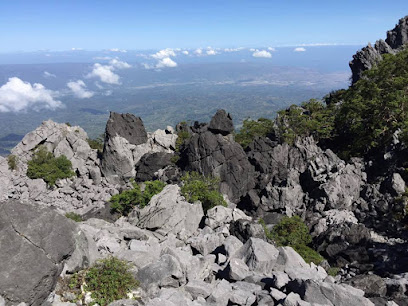
Unmissable attractions to see
Watabo Beach
Experience the tranquil beauty of Watabo Beach in Baucau, a coastal paradise with crystal-clear waters and vibrant local culture.
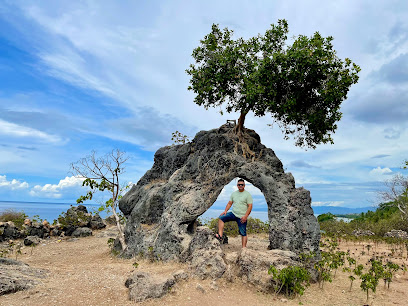
Ariana Mountain
Explore the breathtaking Ariana Mountain in Timor-Leste, a serene destination perfect for nature lovers and adventure seekers alike.
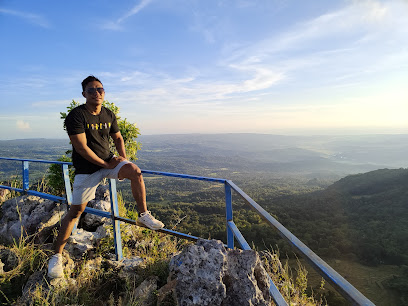
Baguia Fort
Discover the historical charm and natural beauty of Baguia Fort in East Timor, a captivating destination for adventurous travelers.
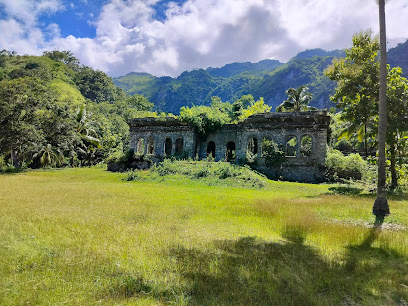
Caibada Beach
Experience the untouched beauty and tranquility of Caibada Beach in Baucau, a perfect getaway for relaxation and adventure in Timor-Leste.
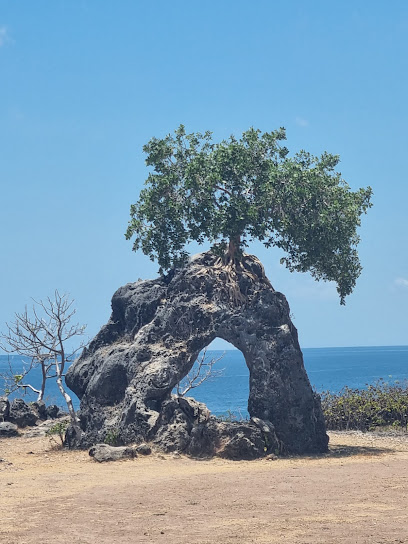
Gariurai Bat (Flying Fox) Colony
Witness the breathtaking spectacle of the Gariurai Bat Colony, where thousands of flying foxes take to the skies at dusk in a stunning natural display.
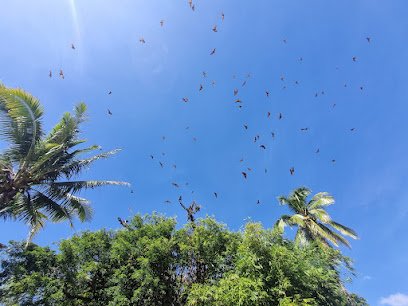
Waterfall, Bee tudak Ira-Bere
Explore the serene beauty of Bee Tudak Ira-Bere Waterfall, a breathtaking natural wonder in Irabin Leteria, perfect for nature lovers and photographers.
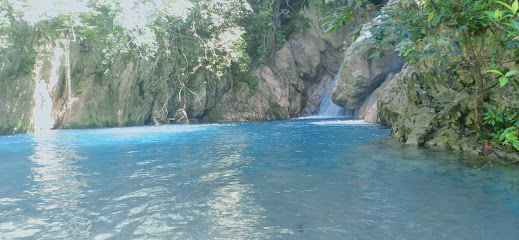
Aslae Ana Caisido
Explore the serene beauty and cultural richness of Aslae Ana Caisido, a hidden gem in Baucau, East Timor, perfect for nature lovers and cultural enthusiasts.
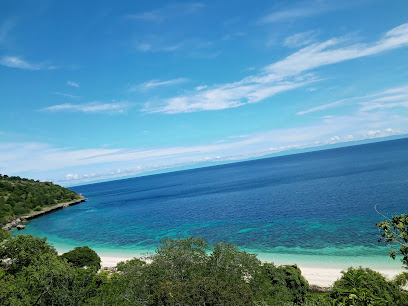
Lou-Huno Waterfall
Experience the breathtaking beauty of Lou-Huno Waterfall, a serene escape in Loihuno surrounded by lush tropical landscapes and vibrant ecosystems.
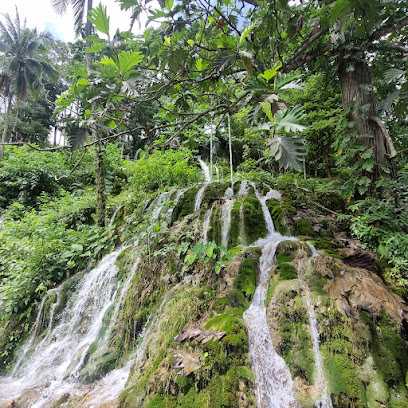
Gamilafa waterfall
Experience the breathtaking Gamilafa Waterfall in Lavateri, a serene escape into nature's beauty with stunning views and tranquil surroundings.
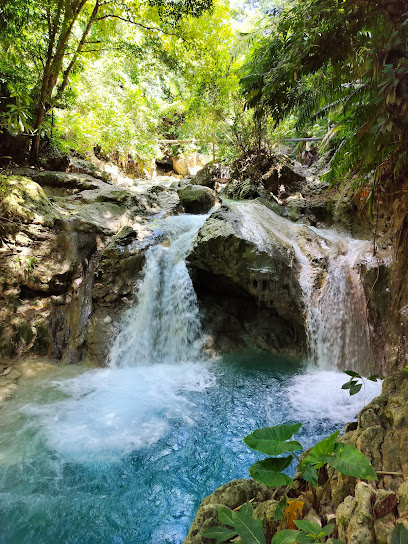
Ponte Natureza
Explore the serene landscapes of Ponte Natureza, a tranquil tourist attraction in Timor-Leste perfect for nature lovers and adventure seekers.
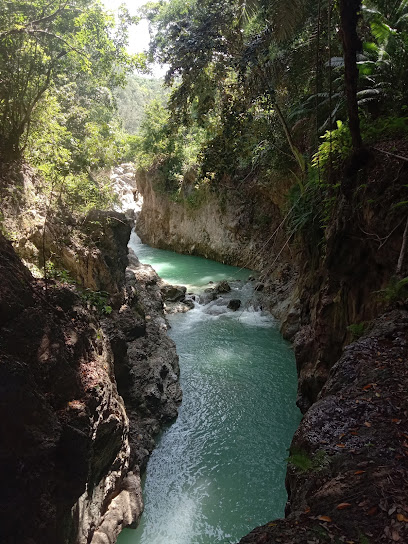
Cascata Assa-Nuno
Explore the stunning Cascata Assa-Nuno, a breathtaking waterfall in Lavateri, Timor-Leste, perfect for nature lovers and adventure seekers.
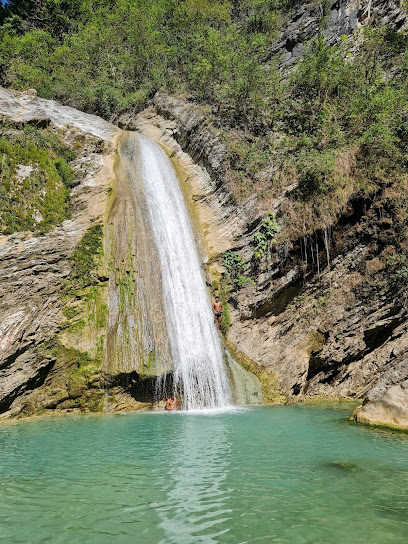
Waiwalu-Meli
Explore the breathtaking natural beauty and rich cultural heritage of Waiwalu-Meli, a must-visit tourist attraction in Timor-Leste.
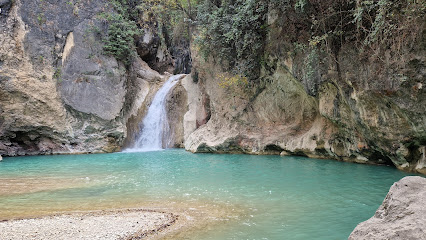
Beaco Mud Vulcano
Experience the Beaco Mud Volcano, a unique geological marvel in Timor-Leste, with bubbling mud pools and breathtaking natural beauty.
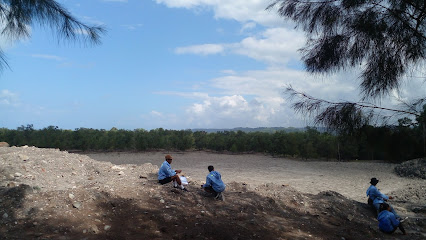
HOT SPRING UAi-Cana
Discover the healing powers of nature at Hot Spring UAi-Cana, a stunning thermal oasis in Timor-Leste, perfect for relaxation and rejuvenation.
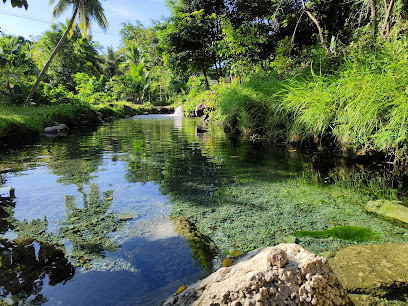
Miradouro de Lariguto
Discover the breathtaking views at Miradouro de Lariguto, a serene viewpoint that showcases the stunning landscapes of Timor-Leste.
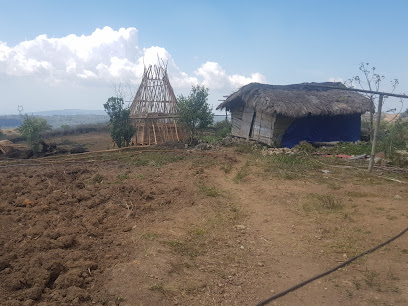
Essential places to dine
Restaurante Amalia
Discover authentic Timorese flavors at Restaurante Amalia in Baucau - a culinary treasure amidst stunning natural beauty.
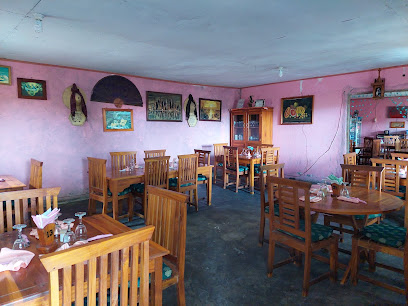
Restaurante Victoria
Discover exquisite flavors and warm hospitality at Restaurante Victoria in Baucau - where culinary tradition meets modern dining.
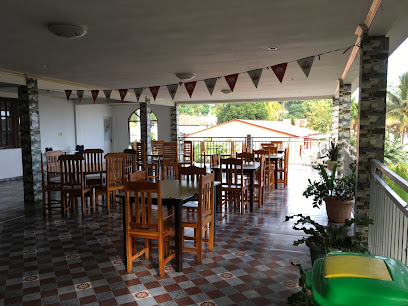
Luz Marter Restaurant & Bakery
Experience a delicious blend of Timorese, Asian, Western, and Italian cuisine at Luz Marter Restaurant & Bakery in Baucau.
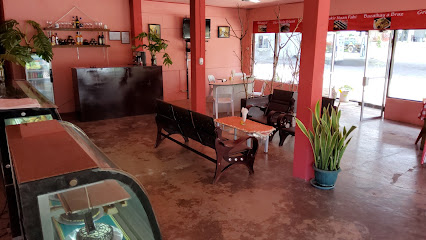
Mini Restourante ziravo
Experience authentic Timorese flavors at Mini Restourante Ziravo in Baucau – a culinary gem for every traveler.
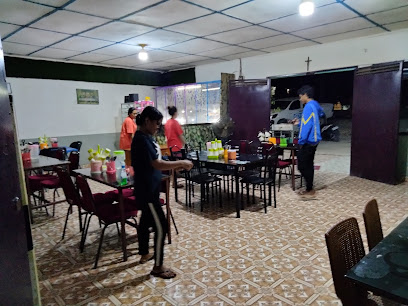
Mulia Grilled Fish
Discover exquisite grilled fish at Mulia Grilled Fish in Laga - a must-visit culinary destination showcasing fresh seafood delights.
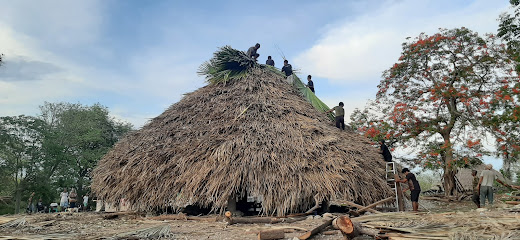
Lalapan Tirilolo
Discover exquisite Asian cuisine at Lalapan Tirilolo in Baucau; a delightful fusion of flavors awaits every visitor.
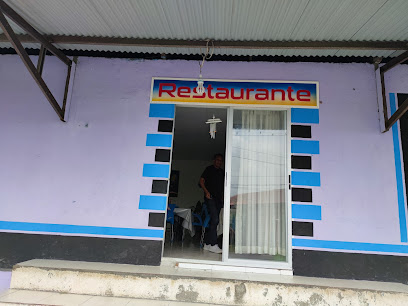
Reditu Resturante
Experience authentic Timorese flavors at Reditu Restaurant in Laga - where tradition meets taste in a cozy atmosphere.
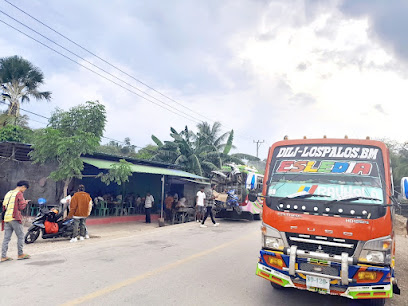
Markets, malls and hidden boutiques
Timor Plaza
Discover a vibrant shopping experience at Timor Plaza in Dili, where local charm meets international brands for an unforgettable day out.
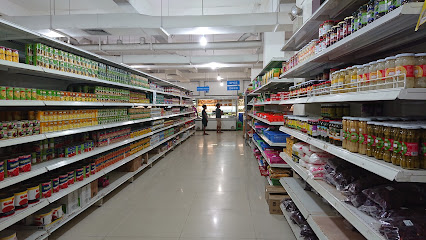
Lita Store
Discover local flavors and essentials at Lita Store, the supermarket that offers a taste of Timor-Leste's vibrant culture and community.
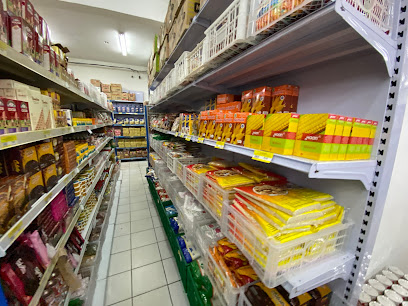
Meimart
Explore Meimart in Dili for a delightful shopping experience with local and international products at your fingertips.
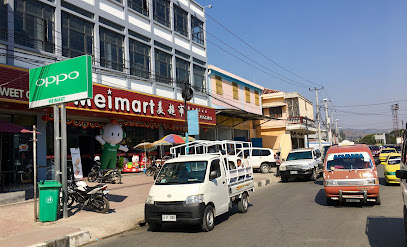
Matebian
Discover the breathtaking beauty and rich culture of Matebian, a majestic mountain peak in Timor-Leste perfect for adventurers and nature lovers.
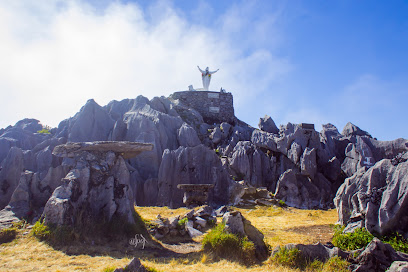
Qulina Supermarket
Explore Qulina Supermarket in Dili for an authentic taste of Timor-Leste's local flavors and vibrant shopping experience.
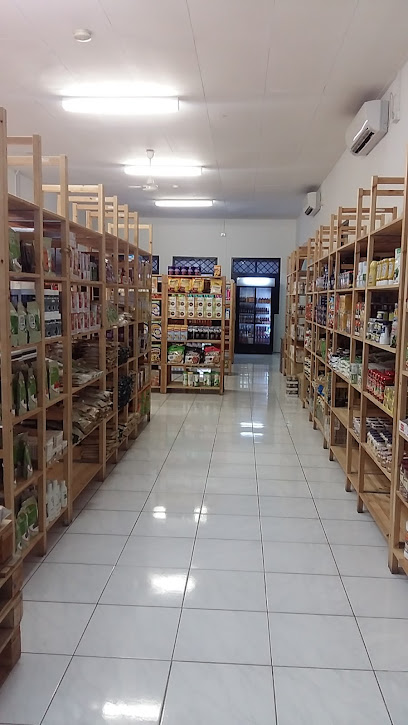
Things and Stories
Explore Things and Stories in Dili for unique home goods that celebrate Timor-Leste's rich culture and artistry.
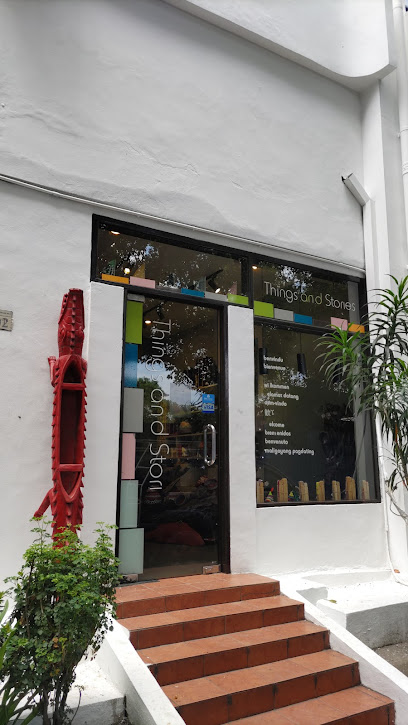
Toko Gemea
Explore Baucau's charm at Toko Gemea, a local convenience store offering Timorese snacks and essentials for every traveler.
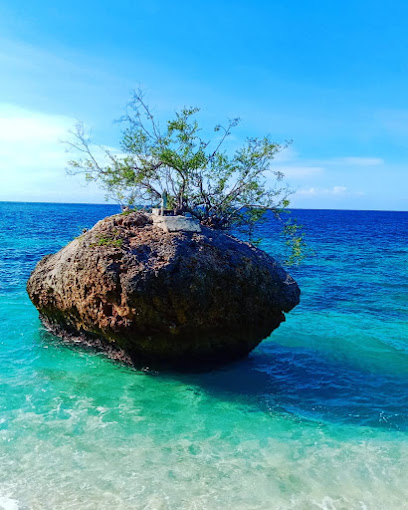
W Four Baucau
Discover the vibrant W Four Baucau shopping mall in Baucau, Timor-Leste, blending local culture with modern retail experiences.
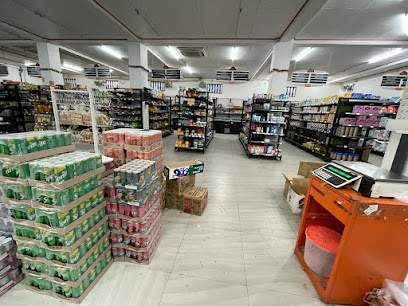
LOJA BALABA
Explore Loja Balaba in Lavateri, a delightful grocery store offering fresh local produce and unique Timorese snacks for travelers.
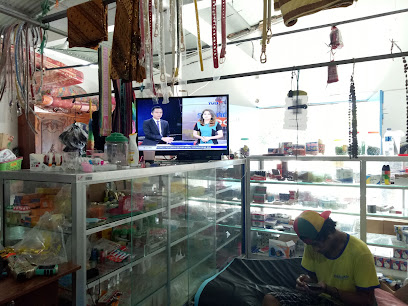
Subdistritu,Uatu Carbau
Discover the vibrant local culture at Subdistritu, Uatu Carbau, a supermarket rich in fresh produce and unique Timorese goods.

Kampunbaru
Explore the vibrant local flavors at Kampunbaru grocery store in Uaitame, Timor-Leste, where authentic produce meets cultural charm.
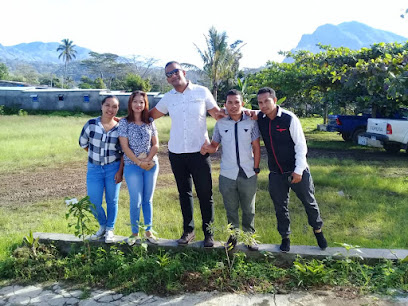
Naisa lopu
Explore Naisa Lopu in Iliomar: Your destination for authentic local products and unforgettable souvenirs.

Bazar Bua-Ua Lavateri
Discover the vibrant shopping culture at Bazar Bua-Ua Lavateri, where local charm meets diverse shopping options in Timor-Leste.

soruhabi
Explore the heart of Irabin Leteria at Soruhabi, a local grocery store where culture meets cuisine through authentic local ingredients.

Loja Mateus
Discover the essence of local life at Loja Mateus, Baucau's charming grocery store offering fresh produce and cultural insights.
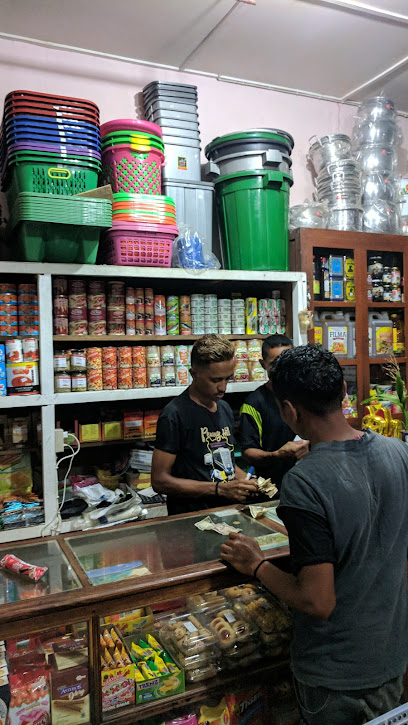
Essential bars & hidden hideouts
Castaway Bar and Restaurant
Experience the vibrant culture and delicious cuisine of Dili at Castaway Bar and Restaurant, your perfect coastal retreat.
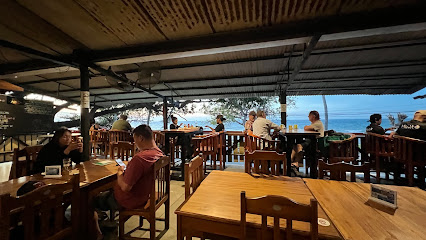
Restaurante Amalia
Experience the authentic taste of Timor-Leste at Restaurante Amalia in Baucau, where every dish tells a story.
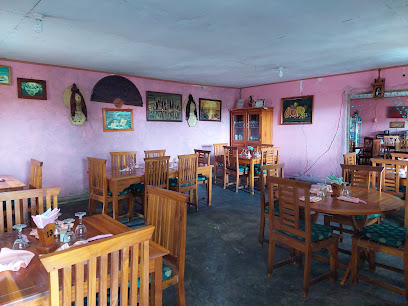
Matebian
Discover the breathtaking beauty of Matebian, a majestic mountain peak in Timor-Leste, perfect for adventure seekers and nature lovers.
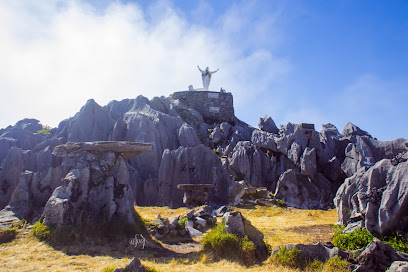
Black Box Cafe and Bar
Experience Dili's vibrant nightlife at Black Box Cafe and Bar, where great drinks and a lively atmosphere await you.
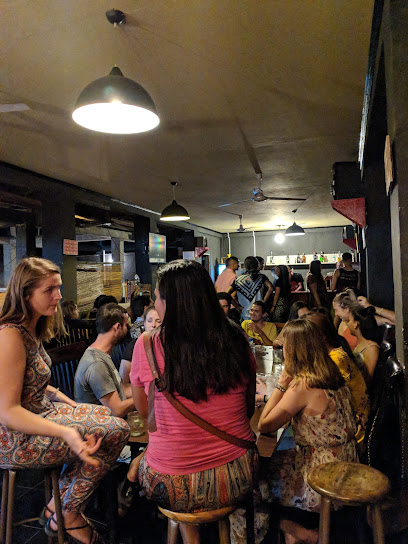
Olé Bar & Tapas
Savor the flavors of Timor-Leste at Olé Bar & Tapas, where vibrant nightlife meets delicious tapas and breathtaking ocean views.
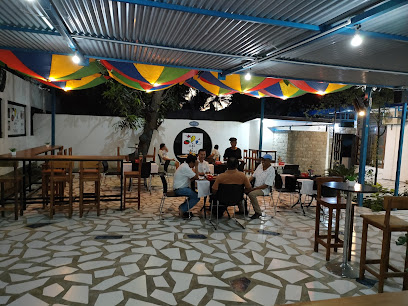
Mini Restourante ziravo
Discover the authentic taste of Timor-Leste at Mini Restourante Ziravo, where traditional flavors meet warm hospitality.
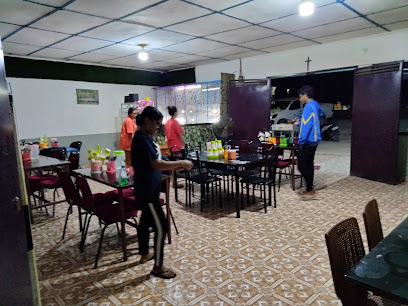
Ponkys Cocktail Lounge
Discover the vibrant nightlife of Dili at Ponkys Cocktail Lounge, where expertly crafted cocktails meet a chic and inviting atmosphere.
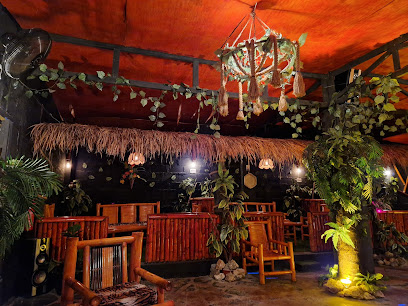
Asarini Cafe and Restaurant
Discover the flavors of Lospalos at Asarini Cafe and Restaurant, where every meal is a celebration of local culinary traditions.
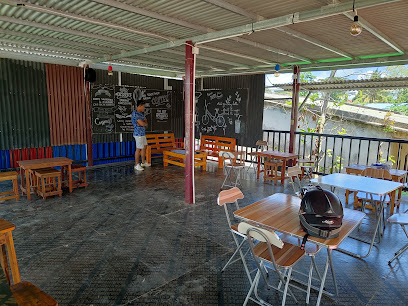
Ponkys Bar & Cafe
Discover the serene beauty and local flavors at Ponkys Bar & Cafe on Atauro Island, your perfect getaway in East Timor.
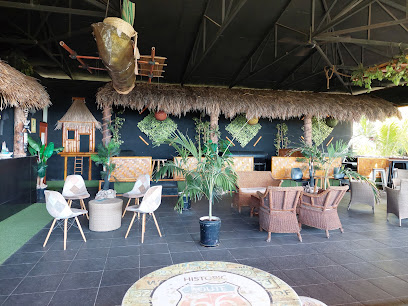
Manu Me'e
Discover the authentic flavors of East Timor at Manu Me'e, a local gem in Baucau offering a delightful dining experience.
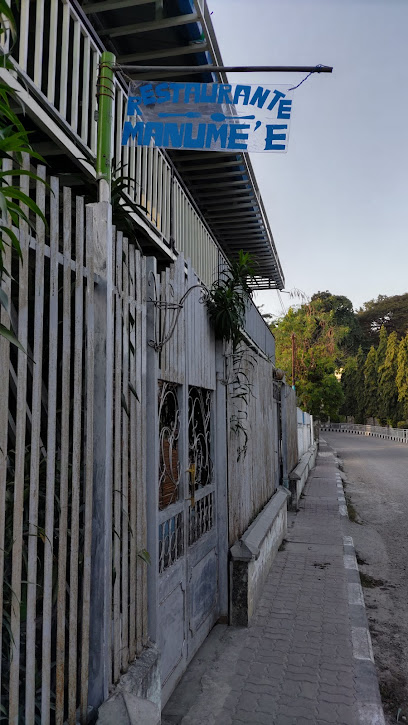
Reggae Bar
Discover Dili's vibrant nightlife at the Reggae Bar, where Caribbean rhythms meet local culture in a lively atmosphere.

QQLay Restaurant & Bar
Experience the vibrant culinary scene at QQLay Restaurant & Bar in Viqueque, where local flavors meet international cuisine in an inviting atmosphere.
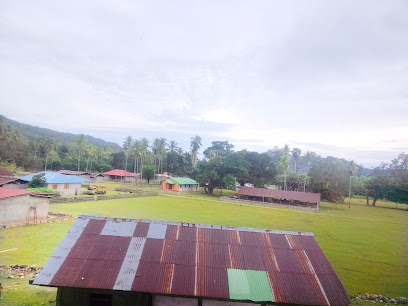
Residensia Do Sr Mateus Das Neves Ximenes
Discover authentic local flavors at Residensia Do Sr Mateus Das Neves Ximenes, a charming diner in Baguia offering a delightful culinary experience.
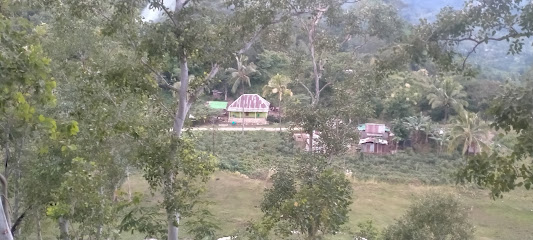
PONDOK FA
Discover the excitement of live sports at Pondok FA, a premier sports bar in Manatuto, blending local flavors with vibrant entertainment.
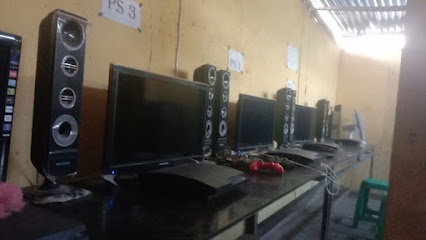
Local Phrases about Matebian Mountain
-
- HelloBondia
[bohn-dee-ah] - GoodbyeAdeus
[ah-deh-oos] - YesSim
[seem] - NoLae
[lie] - Please/You're welcomeFavor
[fah-vohr] - Thank youObrigadu
[oh-bree-gah-doo] - Excuse me/SorryDeskulpa
[dehs-kool-pah] - How are you?Diak ka lae?
[dee-ahk kah lie?] - Fine. And you?Diak. Ita nia?
[dee-ahk. ee-tah nee-ah?] - Do you speak English?Ita hakerek Ingles?
[ee-tah hah-keh-rek een-glehs?] - I don't understandHau la kompriende
[how lah kohm-pree-ehn-deh]
- HelloBondia
-
- I'd like to see the menu, pleaseHau hakarak hare menu, favor
[how hah-kah-rahk hah-reh meh-noo, fah-vohr] - I don't eat meatHau la hakaik katuas
[how lah hah-kai-k kah-too-ahs] - Cheers!Timor!
[tee-mohr] - I would like to pay, pleaseHau hakarak selu, favor
[how hah-kah-rahk seh-loo, fah-vohr]
- I'd like to see the menu, pleaseHau hakarak hare menu, favor
-
- Help!Ajuda!
[ah-joo-dah!] - Go away!Ba oin!
[bah oh-een!] - Call the Police!Klia Polisia!
[klee-ah poh-lee-see-ah!] - Call a doctor!Klia dotor!
[klee-ah doh-tohr!] - I'm lostHau mate nia
[how mah-teh nee-ah] - I'm illHau moras
[how moh-rahs]
- Help!Ajuda!
-
- I'd like to buy...Hau hakarak hola...
[how hah-kah-rahk hoh-lah...] - I'm just lookingHau deit hakarak hare
[how dayt hah-kah-rahk hah-reh] - How much is it?Kuantu presu?
[kwahn-too preh-soo?] - That's too expensiveNe'e barak liu
[neh-eh bah-rak lee-oo] - Can you lower the price?Ita bele hamenus presu?
[ee-tah beh-leh hah-meh-noos preh-soo?]
- I'd like to buy...Hau hakarak hola...
-
- What time is it?Oras kotuk ona?
[oh-rahs koh-took oh-nah?] - It's one o'clockHanesan oras ida
[hah-ne-sahn oh-rahs ee-dah] - Half past (10)Kalan ikus (10)
[kah-lahn ee-koos (dohs)] - MorningManha
[mahn-yah] - AfternoonTarde
[tahr-deh] - EveningKalan
[kah-lahn] - YesterdayKestaun
[kes-tah-oon] - TodayOhin
[oh-heen] - TomorrowAban
[ah-bahn] - 1Ida
[ee-dah] - 2Rua
[roo-ah] - 3Tolu
[toh-loo] - 4Haat
[hah-ah-t] - 5Lima
[lee-mah] - 6Neen
[neh-ehn] - 7Hitu
[hee-too] - 8Ualu
[wah-loo] - 9Sia
[see-ah] - 10Sanulu
[sah-noo-loo]
- What time is it?Oras kotuk ona?
-
- Where's a/the...?Iha neba...
[ee-hah neh-bah...] - What's the address?Enderecu saida ne'e?
[en-deh-reh-soo sah-ee-dah neh-eh?] - Can you show me (on the map)?Ita bele hatudu hau (iha mapa)?
[ee-tah beh-leh hah-too-doo how (ee-hah mah-pah)?] - When's the next (bus)?Bainhira ona (bus) tuir mai?
[bah-een-hee-rah oh-nah (boos) too-eer mah-ee?] - A ticket (to ....)Bilhete (ba ....)
[beel-eh-teh (bah ....)]
- Where's a/the...?Iha neba...
History of Matebian Mountain
-
Matebian Mountain, also known as Mount Matebian or 'Mountain of the Dead,' is one of the most sacred sites in Timor-Leste. It holds deep spiritual significance for the local communities, particularly among the Fataluku people. Traditionally, the mountain is believed to be the dwelling place of ancestral spirits, and it plays a crucial role in various cultural rites and ceremonies.
-
During the Portuguese colonial period, Matebian Mountain was a significant site for resistance against foreign rule. The rugged terrain provided a strategic advantage for local guerrilla fighters who used the mountain as a base to launch attacks and evade capture. The mountain's remote and difficult-to-navigate landscape made it a natural fortress for those resisting colonial forces.
-
During World War II, Timor-Leste was occupied by Japanese forces, and Matebian Mountain again became a focal point for resistance. The mountain's strategic location provided a refuge for Allied forces and Timorese guerrillas who collaborated in efforts to disrupt Japanese operations. The dense forests and caves of Matebian served as hideouts and operational bases during this turbulent period.
-
Following the Indonesian invasion of Timor-Leste in 1975, Matebian Mountain became one of the strongholds for the FALINTIL (Armed Forces for the National Liberation of East Timor) resistance fighters. The mountain's challenging terrain and extensive cave networks were utilized for guerrilla warfare, supply storage, and as shelters for both fighters and civilians. The mountain witnessed numerous battles and acts of resistance throughout the occupation, which lasted until 1999.
-
In contemporary times, Matebian Mountain remains a place of cultural and spiritual importance. Every November, a pilgrimage known as 'Matebian Pilgrimage' attracts thousands of people who ascend the mountain to honor their ancestors and participate in religious ceremonies. This annual event is a testament to the mountain's enduring significance in the cultural and spiritual life of the Timorese people.
-
Beyond its historical and cultural importance, Matebian Mountain is also an ecological treasure. The mountain is home to diverse flora and fauna, including several endemic species. Its unique ecosystem is protected within the boundaries of a national park, ensuring the preservation of its natural beauty and biodiversity. The mountain's forests, streams, and caves offer a sanctuary for wildlife and a natural haven for visitors.
Matebian Mountain Essentials
-
Matebian Mountain is located in the eastern part of Timor-Leste. The nearest major town is Baucau, approximately 100 kilometers from Dili, the capital of Timor-Leste. From Dili, you can take a bus or hire a private vehicle to Baucau. The journey takes around 3 to 4 hours by road. From Baucau, local guides can assist you in reaching Matebian Mountain, either by foot or by more rugged transportation.
-
Transportation options in the area are limited. While in Dili, you can use taxis or public minibuses (microlets) to get around. From Dili to Baucau, public buses and private hires are available. Once in Baucau, the most reliable option to reach Matebian Mountain is to hire a local guide with a vehicle suitable for rugged terrain. Walking and hiking are common modes of transport in the immediate vicinity of the mountain.
-
The official currency of Timor-Leste is the US Dollar (USD). Credit cards are generally not accepted in rural areas, including near Matebian Mountain. It is advisable to carry sufficient cash, as ATMs are scarce outside of major towns. Ensure you withdraw enough cash in Dili or Baucau before proceeding to more remote areas.
-
Timor-Leste is generally safe for tourists, but standard precautions should be taken. Avoid isolated areas at night and always stay alert to your surroundings. Petty crime, such as pickpocketing, can occur in crowded areas. There are no specific high-crime areas targeting tourists near Matebian Mountain, but it's always wise to stay vigilant.
-
In case of an emergency, dial 112 for immediate assistance. The nearest medical facilities are in Baucau, but for serious medical conditions, it is advisable to return to Dili. Ensure you have travel insurance that covers medical emergencies and evacuation if necessary. Local guides can assist in emergencies, and it's recommended to have a basic first aid kit with you.
-
Fashion: Do dress modestly, especially in rural and religious areas. Avoid wearing revealing clothing. Religion: Do respect local customs and traditions. Always ask for permission before taking photos of religious sites and people. Public Transport: Do be polite and patient, as public transport can be crowded and schedules may be irregular. Greetings: Do greet people with a smile and a handshake. A slight bow of the head is also a sign of respect. Eating & Drinking: Do try local delicacies and accept food offerings graciously. Don’t refuse hospitality, as it is considered impolite.
-
To experience Matebian Mountain like a local, consider hiring a local guide who can provide insights into the area’s history and culture. Visit local markets in Baucau to buy fresh produce and traditional Timorese goods. Engage with the local community to learn about their way of life. Don't miss the opportunity to participate in local festivals and ceremonies if your visit coincides with one. The climb to the summit of Matebian Mountain offers breathtaking views and is considered a pilgrimage, so be respectful of its cultural significance.
Nearby Cities to Matebian Mountain
-
Things To Do in Lospalos
-
Things To Do in Same
-
Things To Do in Dili
-
Things To Do in Aileu
-
Things To Do in Gleno
-
Things To Do in Ermera
-
Things To Do in Bobonaro
-
Things To Do in Suai
-
Things To Do in Darwin
-
Things To Do in Makassar
-
Things To Do in Manado
-
Things To Do in Bali
-
Things To Do in Balikpapan
-
Things To Do in Surabaya
-
Things To Do in Davao City




